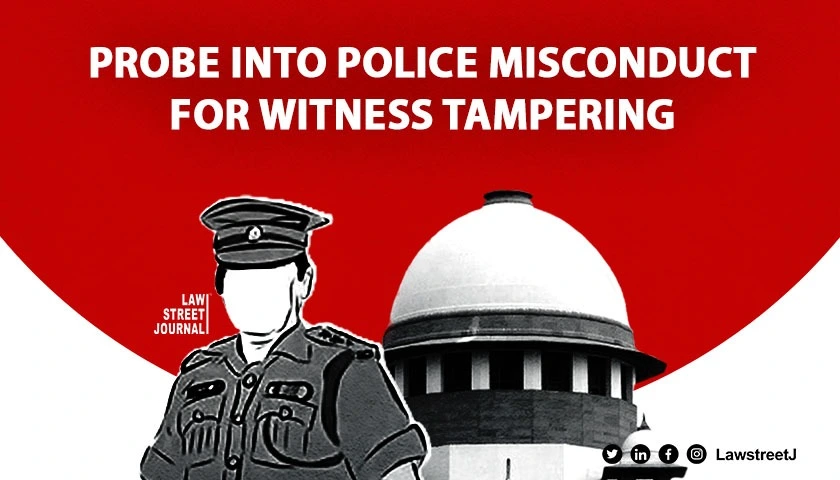NEW DELHI: The Supreme Court has directed Tamil Nadu DGP to get inquiry conducted against the police personnel, taking a serious view of "shocking" and "blatant" acts by them in tutoring prosecution witnesses, forcing it it draw adverse inference and acquit two convicts in a murder case.
A bench of Justices Abhay S Oka and Ujjal Bhuyan set free Manikandan and another person in a murder case of year 2007, after drawing adverse inference against the prosecution for tutoring of five witnesses of the police personnel.
"This is a blatant act by the police to tutor the material prosecution witnesses. All of them were interested witnesses. Their evidence will have to be discarded as there is a distinct possibility that the said witnesses were tutored by the police on the earlier day. This kind of interference by the Police with the judicial process, to say the least, is shocking," the bench said, in its judgment on April 5.
In the case, the court found first five interested witnesses, who were closely related to the deceased, were called to the police station and were "taught" by the police how to depose against the accused.
"Therefore, we must proceed on the footing that the first five witnesses were taught at the police station how to depose. This happened a day before the day their evidence was recorded before the court," the bench said.
The court said it was surprised how this critical aspects were overlooked by the High Court as well as the trial court, which have committed an error in convicting the appellants.
The bench found precisely a day before the evidence of prosecution witnesses before the trial court, they were called to the police station and were taught to depose in a particular manner. One can reasonably imagine the effect of teaching the witnesses inside a police station, the court said.
"This amounts to gross misuse of power by the police machinery. The police cannot be allowed to tutor the prosecution witness. This conduct becomes more serious as other eyewitnesses, though available, were withheld," the bench said.
The appellants were accused of murdering Balamurugan on October 4, 2007. The deceased has asked prime accused Manikandan to deliver Idli at his home. On his failure, he went to house the appellants wherein they attacked him with billhook on neck and finger which resulted into his death.
The court, however, said there is a serious doubt created about the genuineness of the prosecution case.
"The benefit of this substantial doubt must be given to the appellants. Before the appellants were enlarged on bail by this Court, they had undergone incarceration for more than 10 years," the bench said.
In submission, the appellants' counsel said that it was the deceased who went to the house of accused no.1 to enquire about the failure of accused no.1 to deliver idlis at his home.
The fight started only because the deceased went to the house of accused no.1. He submitted that the post-mortem notes show that the deceased sustained one cut injury on his neck and one minor injury to his finger. He further submitted that there was a sudden fight between the deceased and the accused no.1, and in their sudden fight, without any premeditation, the accused no.1 assaulted the deceased.
He also submitted that this is a case where Exception 4 of Section 300 of IPC will apply, and thus, it will amount to an offence under Part 1 of Section 304 of IPC.

















